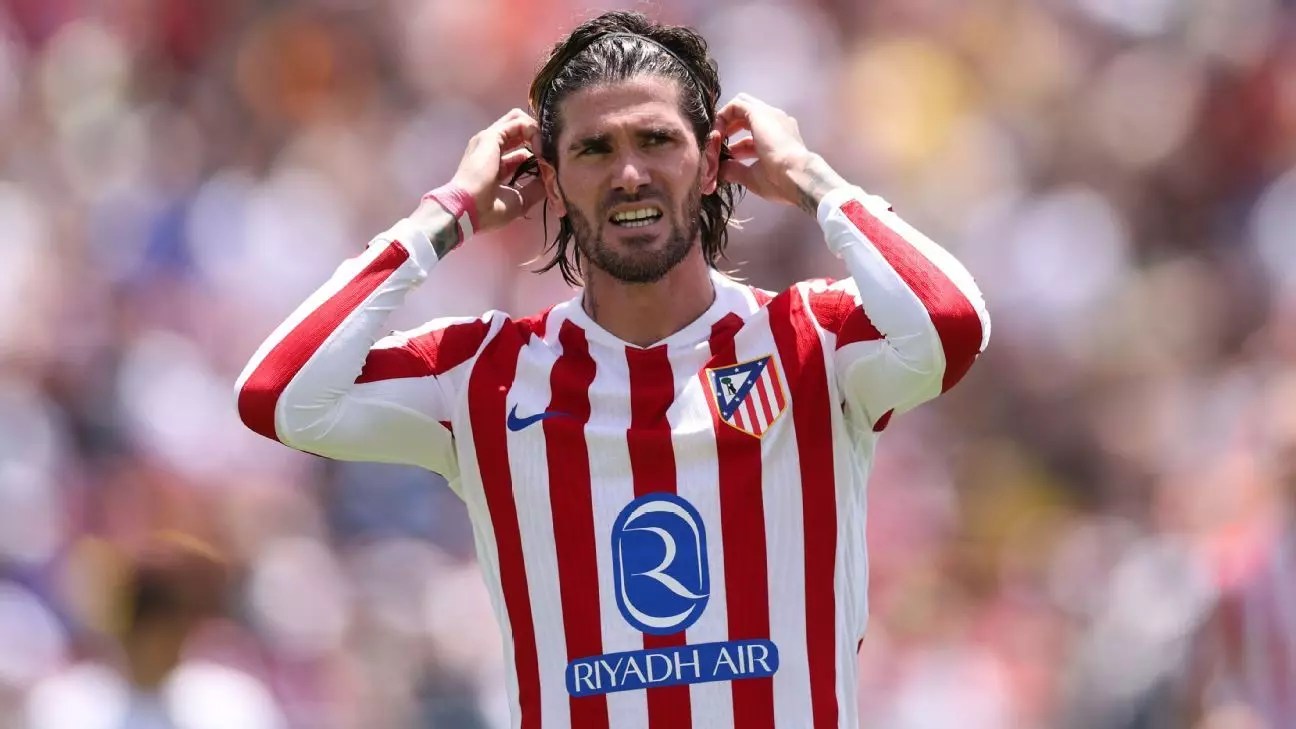Inter Miami’s recent acquisition of Rodrigo de Paul marks a pivotal moment in Major League Soccer’s evolution from a domestic league to a competitive international stage. This move isn’t just about adding a talented midfielder; it’s a calculated statement that Miami aims to attract elite talent and elevate its global reputation. De Paul, renowned for his versatility, vision, and leadership qualities honed at Atlético Madrid and with Argentina, represents a strategic gain for a club eager to shake its seasonal identity and build a culture of sustained excellence. His arrival underpins Miami’s broader vision: transforming from a team of talented individuals into a cohesive, world-class entity capable of competing on multiple fronts.
Breaking the Traditional Mold of MLS Recruitment
Historically, MLS clubs relied heavily on domestic talent or mid-tier international players to fill their rosters. Miami’s signing of De Paul defies that narrative by bringing in a player with genuine international acclaim and experience at the highest levels. His career trajectory—marked by a World Cup victory, Copa América triumphs, and consistent performances for Atlético Madrid—sets a new standard for the league’s ambition. It also exposes the league’s willingness to invest heavily, not just financially but in assembling a roster packed with players who carry genuine star power. This signals a paradigm shift—MLS is no longer a league where players come to wind down but a destination for players seeking competitive challenges and global visibility.
A Calculated Risk with Long-term Potential
The mechanics behind the De Paul deal reveal a shrewd strategy. Arriving on a loan with an option to buy, the club minimizes initial financial risk while maintaining flexibility. This flexibility hints that Miami views De Paul as more than a stopgap; they see a pathway to integrating him into their core ambitions. The fact that he arrives unclassified as a designated player suggests the club is mindful of their roster constraints but keeps the door open for future moves. If De Paul performs well and contributes significantly, Miami can elevate him into a designated spot—turning a commendable signing into a cornerstone of their future squad.
Ambition Beyond the Pitch
Miami’s ambition extends beyond merely signing talented individuals. The club aims to create a aspirational environment that attracts players like Messi, Alba, and Busquets—world-class champions whose presence can elevate the league’s stature. De Paul’s signing is part of this broader narrative—a push to cultivate a competitive squad that not only wins on the field but also attracts worldwide attention. Miami recognizes that to truly be recognized as a major sporting destination, they must assemble a roster that captures imaginations and sparks conversations beyond the local market. The city’s diverse, vibrant fanbase offers fertile ground for this vision to flourish, and De Paul’s arrival is a clear message: Miami is in the game for high-stakes success.
Implications for MLS and International Soccer
This move exemplifies how MLS is increasingly a rival to traditional European centers of football excellence. By signing a player like De Paul, Miami signals its intent to challenge fan perceptions and set new standards for club ambitions. It also raises questions about the league’s future direction—will more clubs follow suit by luring international stars on similar deals? If so, the league’s competitive quality could rise exponentially, akin to the growth experienced by other major sports leagues worldwide. For the global game, Miami’s bold step could serve as a catalyst for a more interconnected soccer ecosystem where talent flows freely across continents, challenging the notion that Europe is the only pinnacle of football excellence.
In sum, Rodrigo de Paul’s arrival in Miami isn’t just a transfer—it’s an assertion of intent. The club’s strategic approach, combined with the league’s dynamic evolution, suggests that Major League Soccer is rapidly repositioning itself as a serious contender on the world football map, with Miami leading the charge into this exciting new chapter.


Leave a Reply